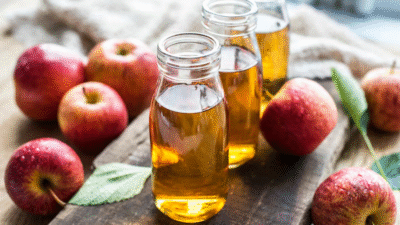
Meta Title: 7 Herbal Teas for Digestion in 2025 | Natural & Effective Remedies
Meta Description: Discover 7 proven herbal teas for digestion in 2025. Natural, soothing, and effective remedies to improve gut health and relieve digestive discomfort.
Introduction
Struggling with digestion issues? You’re not alone. Millions face discomforts like bloating, indigestion, and irregular bowel movements daily. Modern lifestyles and diets often disrupt our digestive health, making natural solutions more important than ever. Fortunately, herbal teas for digestion have stood the test of time as gentle, effective remedies to soothe the stomach and promote gut health.
In this article, we’ll explore 7 best herbal teas in 2025 scientifically supported to improve digestion. You’ll discover how these natural digestion remedies work, their key benefits, and how to use them safely. If you want to optimize your gut health with soothing teas for digestion that are both natural and effective, keep reading!
Why Herbal Teas Are a Natural Digestive Aid in 2025
Herbal teas have been used for centuries across cultures for their medicinal properties. Unlike pharmaceutical drugs, herbal teas typically have fewer side effects and work holistically by supporting the body’s natural processes. The global trend in 2025 is toward embracing natural digestive aid methods, driven by growing awareness of gut health’s crucial role in overall wellness.
Benefits of Herbal Teas for Digestion
- Reduce inflammation in the gastrointestinal tract
- Promote healthy gut bacteria balance
- Relieve symptoms such as bloating, gas, and cramps
- Stimulate digestion and bile production for better nutrient absorption
- Calm stomach muscles and reduce spasms
7 Best Herbal Teas for Digestion in 2025

1. Peppermint Tea
Peppermint tea is a top choice for digestive relief due to its antispasmodic properties. It helps relax the muscles of the gastrointestinal tract, easing cramps and discomfort.
- Key compounds: Menthol, flavonoids
- Benefits: Reduces bloating, soothes indigestion, aids IBS symptoms
- How to use: Brew 1 tsp dried peppermint leaves in hot water for 5-7 minutes. Drink after meals.
Real-world example: A 2023 study published in the Journal of Gastroenterology found peppermint oil capsules significantly reduced IBS symptoms, highlighting peppermint’s digestive benefits.
2. Ginger Tea
Known worldwide, ginger tea is a powerful digestive stimulant and anti-inflammatory agent. It encourages gastric emptying and reduces nausea.
- Key compounds: Gingerol, shogaol
- Benefits: Relieves nausea, improves digestion speed, reduces inflammation
- How to use: Slice fresh ginger root, steep in boiling water for 10 minutes. Drink warm before or after meals.
Tip: Add lemon or honey for added soothing effects and taste.
3. Chamomile Tea
Chamomile tea is famous for its calming effects on both the mind and the digestive tract. It helps reduce stomach acid and relaxes intestinal muscles.
- Key compounds: Apigenin, bisabolol
- Benefits: Eases indigestion, soothes acid reflux, reduces stomach cramps
- How to use: Steep dried chamomile flowers for 5 minutes. Enjoy before bedtime for combined digestive and sleep benefits.
4. Fennel Tea
Fennel tea is especially popular for relieving gas, bloating, and constipation. It has carminative properties that expel gas and relax the digestive system.
- Key compounds: Anethole, fenchone
- Benefits: Reduces bloating, improves digestion, aids constipation
- How to use: Crush fennel seeds slightly and steep in hot water for 7-10 minutes. Drink after meals for best results.
Note: Fennel tea is widely used in Ayurvedic and Traditional Chinese Medicine for digestive health.
5. Dandelion Tea
Dandelion tea acts as a gentle liver tonic and diuretic, stimulating bile flow and aiding fat digestion.
- Key compounds: Taraxasterol, chicoric acid
- Benefits: Supports liver function, improves digestion of fats, reduces bloating
- How to use: Use dried dandelion root or leaves, steep for 10-15 minutes. Drink 1-2 cups daily.
6. Licorice Root Tea
Licorice root tea soothes the stomach lining and combats ulcers and acid reflux symptoms. It has anti-inflammatory and mucilage properties.
- Key compounds: Glycyrrhizin, flavonoids
- Benefits: Protects stomach lining, relieves heartburn, reduces inflammation
- How to use: Steep dried licorice root for 5-10 minutes. Limit intake to avoid potential side effects from excessive glycyrrhizin.
7. Lemon Balm Tea
Lemon balm tea calms the digestive tract and reduces stress-related digestive issues, like indigestion and cramps.
- Key compounds: Rosmarinic acid, flavonoids
- Benefits: Relieves indigestion, reduces bloating, promotes relaxation
- How to use: Steep fresh or dried lemon balm leaves for 5-7 minutes. Drink before or after meals.
How to Choose and Prepare Herbal Teas for Digestion
- Use quality herbs: Organic, pesticide-free herbs ensure the best benefits.
- Correct steeping time: Avoid over-brewing which can lead to bitterness.
- Drink regularly: Consistency is key for digestive health improvement.
- Combine wisely: Some teas can be blended for enhanced effects, e.g., ginger and peppermint.
Digestion Improvement Herbs Comparison Table
| Herbal Tea | Primary Benefits | Best Use Time | Key Active Compounds |
|---|---|---|---|
| Peppermint | Relaxes gut muscles, reduces cramps | After meals | Menthol, flavonoids |
| Ginger | Stimulates digestion, anti-nausea | Before/after meals | Gingerol, shogaol |
| Chamomile | Soothes acid reflux, calms stomach | Before bed | Apigenin, bisabolol |
| Fennel | Reduces gas, bloating, constipation | After meals | Anethole, fenchone |
| Dandelion | Supports liver, aids fat digestion | Anytime | Taraxasterol, chicoric acid |
| Licorice Root | Protects stomach lining, anti-inflammation | After meals | Glycyrrhizin, flavonoids |
| Lemon Balm | Relieves indigestion, reduces stress | Before/after meals | Rosmarinic acid, flavonoids |
What’s New in 2025: Trends in Herbal Digestion Remedies
- Personalized herbal blends: Advances in gut microbiome research help tailor herbal teas to individual digestive needs.
- Sustainability focus: Organic, ethically sourced herbs dominate the market.
- Tech integration: Smart tea infusers optimize steeping times and temperatures for maximum benefits.
Internal & External Links
- Learn more about gut health and nutrition on our Healthy Living Guide.
- For detailed studies on peppermint’s effects, visit the Journal of Gastroenterology here.
- Explore natural digestive supplements backed by research on National Institutes of Health.
FAQ Section (For Rich Snippets)
1. What are the best herbal teas for digestion?
The best herbal teas include peppermint, ginger, chamomile, fennel, dandelion, licorice root, and lemon balm. Each tea offers unique benefits like reducing bloating, soothing cramps, or improving nutrient absorption.
2. Can herbal teas replace medications for digestive issues?
While herbal teas provide natural relief and support digestive health, they should not replace prescribed medications without consulting a healthcare professional. They work best as complementary remedies.
3. How often should I drink herbal teas for digestion?
For most, drinking 1-3 cups daily, especially after meals, can improve digestion. However, individual tolerance varies, so start with smaller amounts.
4. Are there any side effects of herbal teas?
Most herbal teas are safe, but excessive consumption of licorice root can raise blood pressure. Pregnant or nursing women should consult doctors before use.
5. Can herbal teas help with chronic digestive disorders like IBS?
Herbal teas like peppermint and ginger have shown benefits in managing IBS symptoms by reducing spasms and nausea, but they are part of a broader treatment plan.
6. How do I prepare herbal teas for maximum benefits?
Use fresh or high-quality dried herbs, steep in hot water for the recommended time, and avoid boiling herbs for too long to preserve active compounds.
Conclusion
Improving digestion naturally is easier with the right herbal teas. Peppermint, ginger, chamomile, fennel, dandelion, licorice root, and lemon balm offer soothing, effective support for your gut health in 2025. Start incorporating these herbal remedies for stomach today and feel the difference!
Have you tried any of these herbal teas for digestion? Share your experiences or questions below! Don’t forget to subscribe to our newsletter for more health tips and natural remedies.




